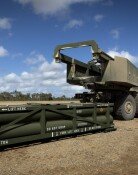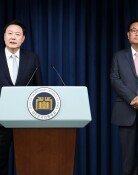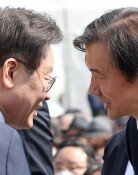Poor information system for overseas industries
Poor information system for overseas industries
Posted November. 17, 2021 07:20,
Updated November. 17, 2021 07:20
Regarding the Chinese customs authorities’ measures to strengthen the inspection of urea items on October 11, which triggered the supply shortage of urea solution, the Korea Trade Center in Beijing of the Korean Trade-Investment Promotion Agency (KOTRA) and the Ministry of Trade, Industry and Energy reported the issue to the presidential office as an agricultural issue, such as fertilizer. Under circumstances that the global supply chain is being affected by the battle between the U.S. and China for economic hegemony and countries’ environment-friendly policies, the information report and analysis systems that should have caught the changes that would bring huge impact to the overall economy and warned were broken.
The KOTRA’s Korea Trade Center in Beijing thought China’s measures related to urea export as an issue only related to raw materials for fertilizer and reported to its headquarters as such on October 22. The center failed to recognize that it is a significant issue that can affect passenger cars, freight vehicles, fire trucks, construction machines, and even power plants that use urea solution for air pollutants reduction devices of diesel engines. The Ministry of Trade, Industry and Energy reported similarly to its superior office, which means a Cheong Wae Dae official’s explanation that they thought it was just a fertilizer issue was true. The government’s delayed response of holding the first meeting three weeks after China’s plan was introduced was the result of a series of misjudgments.
The KOTRA said the misjudgment was caused by a lack of a department in charge of import issues as they are an organization supporting export. It is an absurd excuse, but a public organization alone cannot be held responsible for all. The export policy changes of China, which is South Korea’s biggest trading partner, should have been noticed by the South Korean embassy in China, the Ministry of Foreign Affairs, as well as the National Intelligence Service, which collects and analyzes information on overseas industries. South Korean ambassador to China Jang Ha-sung who had coordinated South Korea’s economic policies as the presidential secretary of policies of the current administration and NIS Director Park Jie-won who made a pledge to stop illegal inspections and political involvement and build a strong information organization for overseas industries won’t be able to avoid responsibility for the supply shortage of urea solution.
While the shortage continues, the government and large companies are trying to find routes to import urea solution and gradually resolving the issue. However, unless the broken and out-of-sync information report and analysis system for overseas industries is improved, similar problems caused by human mistakes will be repeated. The government should reinforce the analysis capabilities of overseas industry information and restore an industry information network that organically connects overseas public offices and South Korean businesses in overseas locations in order to be prepared for drastic changes in the global supply chain.
Headline News
- Med professors announce intention to leave hospitals starting Thursday
- Bridge honoring Sgt. Moon Jae-sik unveiled in Pennsylvania
- Chief of Staff Chung tells presidential secretaries to stay away from politics
- US FTC bans noncompete agreements
- N. Korea launches cyberattacks on S. Korea's defense companies







